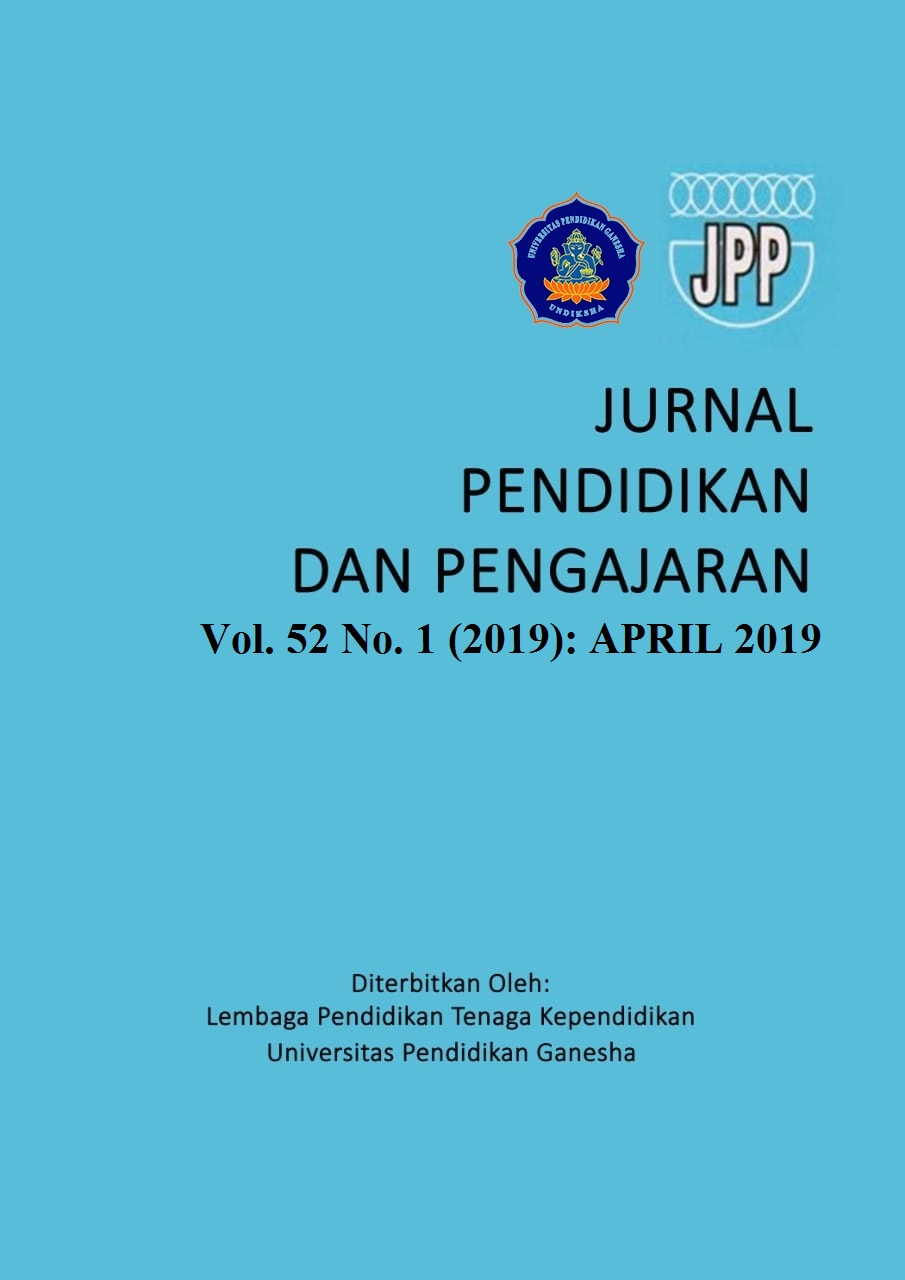Implementation of make a match model to improve thematic learning outcomes
DOI:
https://doi.org/10.23887/jpp.v52i1.17246Keywords:
thematic learning, make a match, learning outcomeAbstract
Curriculum 2013 focuses on the implementation of thematic learning; thus requires a suitable model of approach to improve student learning outcomes. The purpose of this study was to apply make a match learning model to Curriculum 2013 Theme 7 and analyze its influence to improve learning outcomes in primary school students. This classroom action research was conducted in 2 cycles at SDN Kutowinangun 10 Salatiga with a study sample of 16 students in class IV. Each cycle had 4 stages, i.e. planning, action, observation, and reflection. Data collection techniques used were tests and observations. Result shows an increase in students' learning outcomes indicated by an increase in the number of students who passed the Minimum Completion Criteria, i.e. from 37.5% in cycle 1 to 81.25% at the end of cycle 2. Therefore, make a match cooperative model could be implemented by teachers to improve the quality of learning in the classroom.Downloads
Published
2019-04-05
How to Cite
Susanti, H., & Radia, E. H. (2019). Implementation of make a match model to improve thematic learning outcomes. Jurnal Pendidikan Dan Pengajaran, 52(1), 26–32. https://doi.org/10.23887/jpp.v52i1.17246
Issue
Section
Articles
License
Authors who publish with Jurnal Pendidikan dan Pengajaran agree to the following terms:- Authors retain copyright and grant the journal the right of first publication with the work simultaneously licensed under a Creative Commons Attribution License (CC BY-SA 4.0) that allows others to share the work with an acknowledgment of the work's authorship and initial publication in this journal
- Authors are able to enter into separate, additional contractual arrangements for the non-exclusive distribution of the journal's published version of the work (e.g., post it to an institutional repository or publish it in a book), with an acknowledgment of its initial publication in this journal.
- Authors are permitted and encouraged to post their work online (e.g., in institutional repositories or on their website) prior to and during the submission process, as it can lead to productive exchanges, as well as earlier and greater citation of published work. (See The Effect of Open Access)





